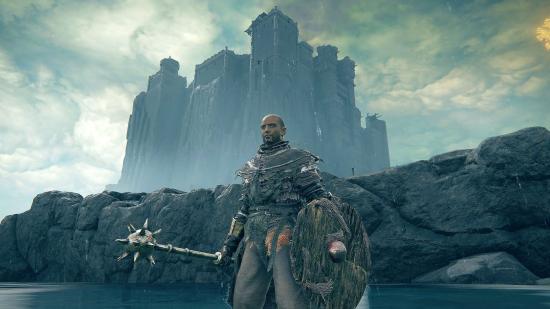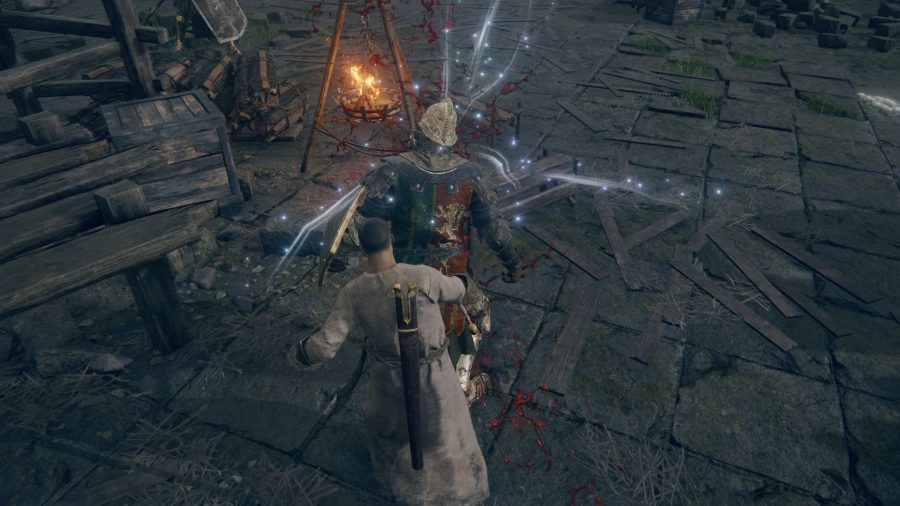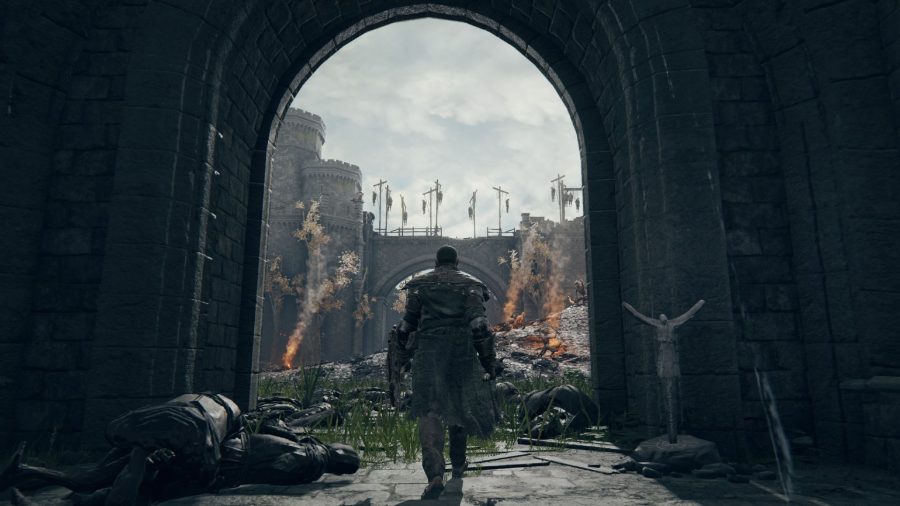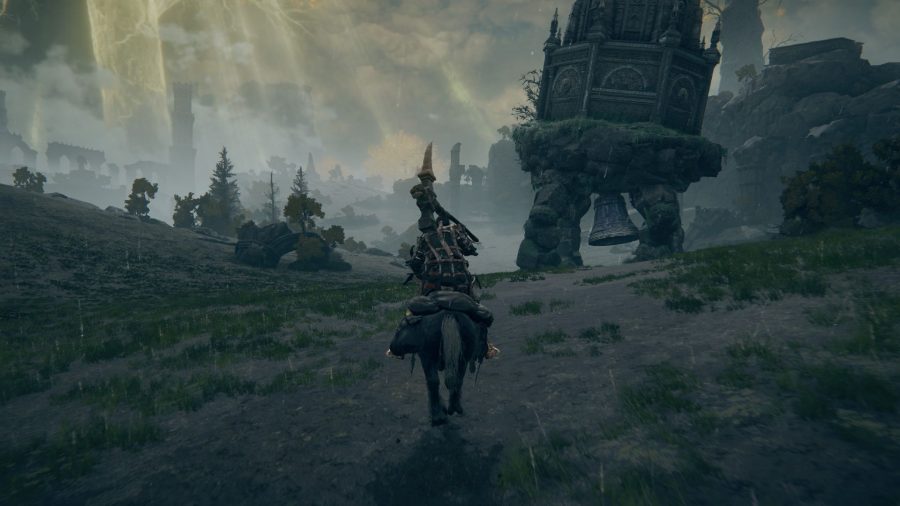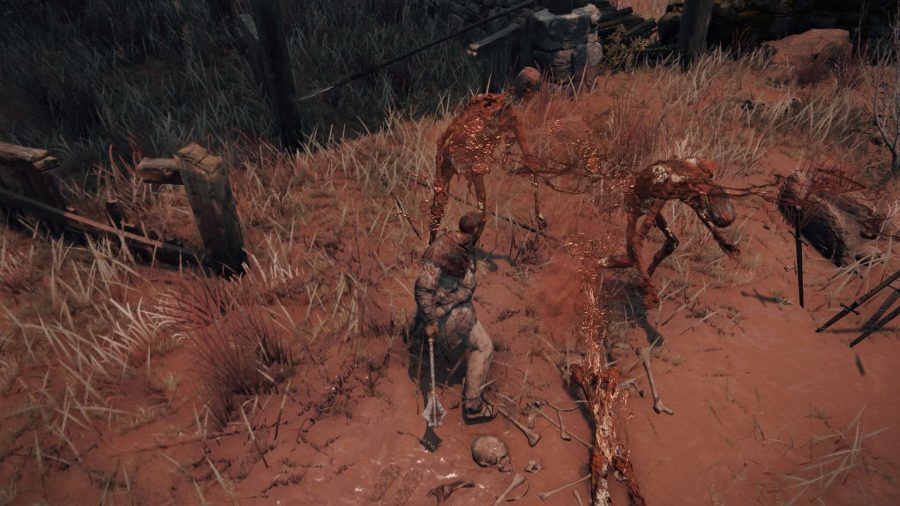Perfect review scores. Game of the year buzz. Nonstop hype from fans. After six years of development, FromSoftware launched Elden Ring to the kind of reception every game developer dreams of. Celebrated for delivering on the studio’s promises and more, Elden Ring will generate discussions on open-world RPG game formulas for years to come.
Those discussions may, unfortunately, be plagued by the tired ‘difficulty vs accessibility’ arguments that have followed the Souls series since the release of Demon’s Souls in 2009. It’s a notoriously challenging series for newcomers, and the flip side of having such a high barrier to entry is that Souls games have earned a reputation for being inaccessible. Despite both the studio’s efforts to address these concerns with Elden Ring, the same criticisms have resurfaced, and with them, backlash from fans against disabled gamers.
Disabled gamers have heard it all before. Predictable excuses, like the difficulty being ‘the artist’s vision’, are followed by suggestions that an easy mode ‘spoils the whole experience’, and that ‘the game isn’t for you’ if you want such a thing.
But non-disabled gamers making that argument aren’t defending the vision of the developers, they’re defending a myth. FromSoft has been clear that its vision for Elden Ring was for it to be “a low-stress experience.” And, relatively speaking, it is – this is an open-world game with hundreds of checkpoints and a magical horse you can summon instantly.
 Elden Ring Elden Ring $59.99 Buy now Network N earns affiliate commission from qualifying sales.
Elden Ring Elden Ring $59.99 Buy now Network N earns affiliate commission from qualifying sales.
Speaking to PlayStation, Miyazaki says, “I don’t want new players to worry or stress about that difficulty too much.”
So, why are arguments about artistic vision still being made? If FromSoft says it wants to make accessible games, shouldn’t disabled gamers get to critique them? Especially when our findings have more to do with Elden Ring’s lack of basic accessibility options and features than difficulty modes.
I started Elden Ring as an initiate to FromSoft who happens to have spinal muscular atrophy (SMA). SMA impairs my mobility and strength, and it’s led to chronic pain that affects my memory and focus at times. I assumed, based on the reputation of Souls games, that I would hate Elden Ring and ask for a refund. I didn’t. Playing is a struggle, but I’m loving Elden Ring’s deliberately designed challenges; FromSoft gatekeepers have done the studio a disservice.
Further along in the same interview with PlayStation, Miyazaki says, “I feel like our approach to these games, not just Elden Ring, is to design them to encourage the player to overcome adversity. We don’t try to force difficulty or make things hard for the sake of it. We want players to use their cunning, study the game, memorise what’s happening, and learn from their mistakes.”
When reading interviews with FromSoft’s developers, I don’t interpret the studio’s aim as centering on difficulty, which is a concept that’s relative to each player anyhow. Instead, I see its goal as focusing on strategy and practised skill, with difficulty simply being a cog in the machine.
That’s been my experience with Elden Ring. For me, combat isn’t the draw, rather it’s figuring out enemy AI and adapting to it that’s got me hooked. I can’t help but feel pretty sentimental towards the process, seeing as it’s exactly what my dad loves old-school games like Donkey Kong.
But to win any strategy game or practice any skill, you need the right tools at your disposal, and it’s here where Elden Ring fails disabled gamers. In my accessibility review, I wrote that it’s like being “transported back to the early 2010s” as even fundamental options like varying subtitle sizes are missing.
Non-disabled gamers and the game industry at large must understand that whenever there’s a story of a disabled gamer beating a Soulslike game, that player had the necessary tools. Those tools can be game mechanics, customisable options, hardware, physical or cognitive abilities, or even time; not everyone has those things.
Moreover, disabled gamers shouldn’t be used for inspiration porn. It’s objectifying. And while comments from Miyazaki aren’t targeted at disabled gamers, his language in interviews is used to fuel ableist toxicity from fans. Disabled gamers can’t ‘overcome’ disability the way Miyazaki says adversity can be overcome. We can strategise around it. We can work with studios to create more pathways. But disabilities are a part of us; they’re not adversities, barriers are.
When non-disabled gamers and some critics lauded the absence of an in-game quest log and suggested others keep a physical one, I was baffled. I enjoy Elden Ring and believe it deserves praise, but how can I, someone who doesn’t have the strength to use a pen, keep a physical journal to help me remember key quest beats? Why not suggest that FromSoft implement note-taking, even if optional, as a feature in future open-world games? Wouldn’t that aid in their commitment to accessible design instead?
Luckily for me, the environmental design is meticulous enough to help me remember key locations. Other disabled gamers haven’t found this as achievable.
I’ll leave you with Ben Bayliss’ Can I Play That? piece on Elden Ring. It’s an article I keep going back to. Ben echoes every disabled gamer excluded from Elden Ring and libraries of other games in five words: “I just wanted to play.”
 Elden Ring Elden Ring $59.99 Buy now Network N earns affiliate commission from qualifying sales.
Elden Ring Elden Ring $59.99 Buy now Network N earns affiliate commission from qualifying sales.
